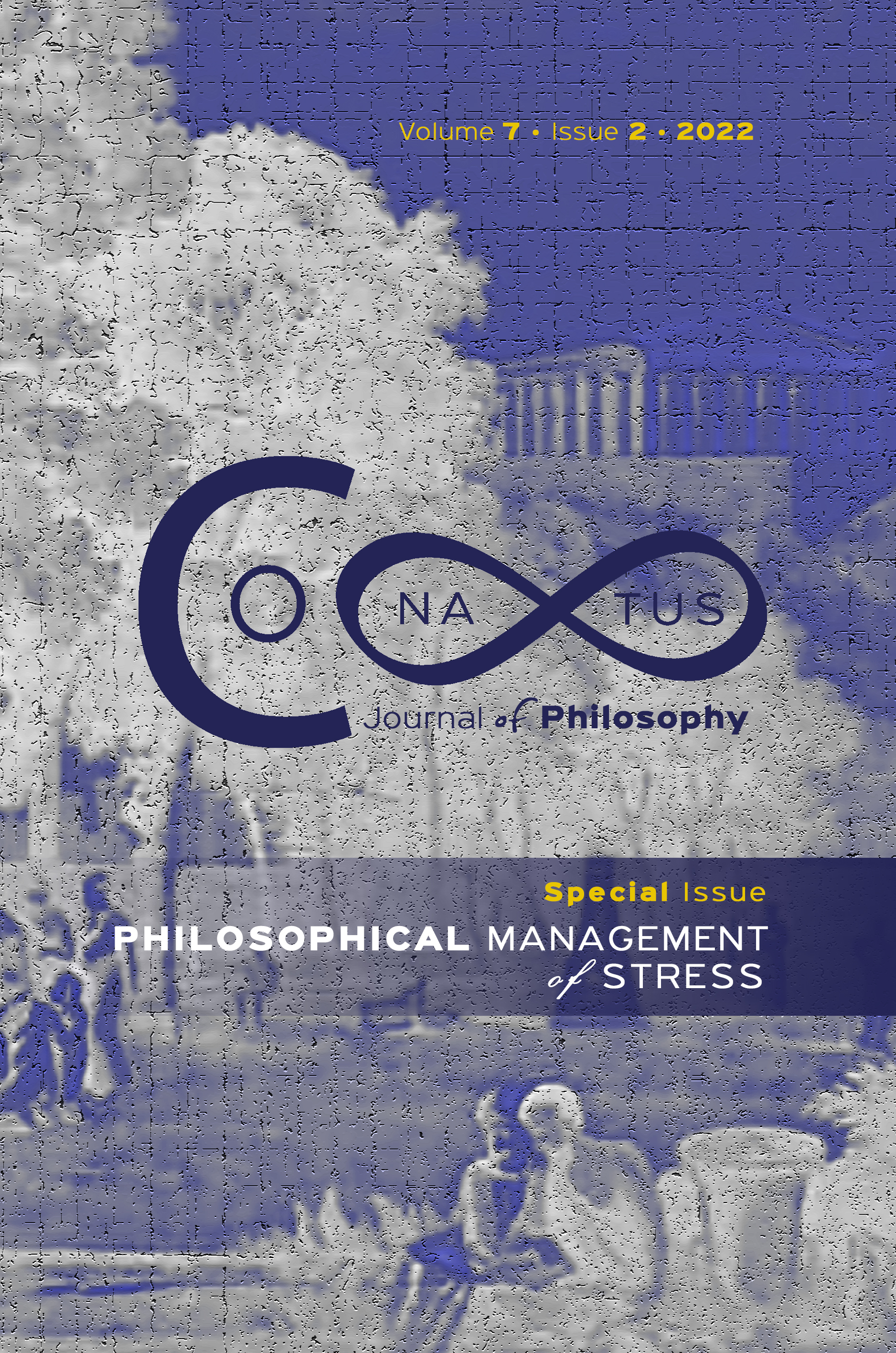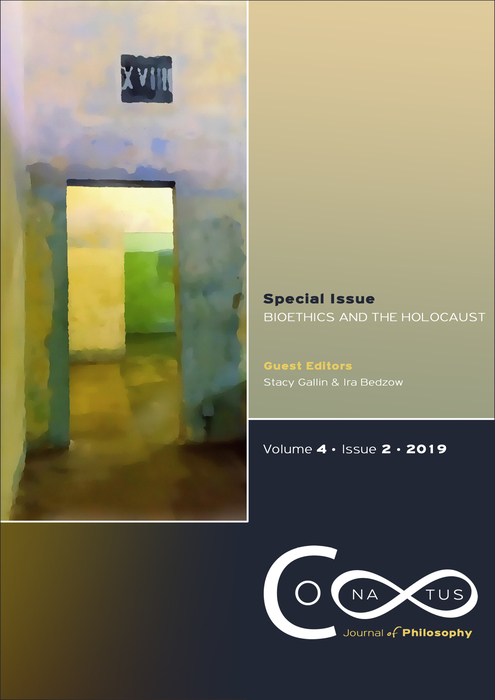Philosophical Management of Stress: An Introduction

Abstract
All human needs are compromised by everyday stressful conditions, which may be objectively devastating or subjectively augmented due to idiosyncratic way of thinking. Unmanaged acute stress can affect emotions, thinking and behavior and chronic stress can result in several severe health problems. Philosophy may provide a frame of thinking that may help in managing everyday stress. There are personal dimensions in the philosophical management of stress based on examples of Aristotle’s eudaimonia consisted of morality and pleasure, Plato’s transcendence aiming to join with the supreme good, Pyrrho’s serenity through suspension of judgement and the Stoics’ rational attachment to virtue. Furthermore, there are social dimensions of philosophical management of stress, since there is abundant scientific evidence that stress affects moral decision-making and therefore an ethical theory of life may not be sufficient in stressful conditions. In this context, such social aspects include the relationship of eudaimonia with community life, the artistic practice and the virtual eroticism in the contemporary world of digital media as a stress relief from physical confrontation with other persons in real life, the empathy and care as a crucial quality for stress relief and social change, as well as the Epicurean approach of stress management that may have both personal and social utility. Intervention programs of stress management combining many lifestyle techniques have been shown to enhance resilience and decrease stress for a period of time, based on systematic behavioral change. Two successful novel empirical pilot studies of pure philosophical management of stress based on cognitive psychotherapy and modification of mentality have been presented, both of them realized in the COVID-19 pandemic period: a three-month positive psychology intervention combined with Epicurean and Stoic concepts was provided to adolescent students and a month-long philosophical management of stress program based on Science and Epicurean Philosophy was offered to public sector professionals.
Article Details
- How to Cite
-
Yapijakis, C. (2022). Philosophical Management of Stress: An Introduction. Conatus - Journal of Philosophy, 7(2), 7–31. https://doi.org/10.12681/cjp.31823
- Section
- Articles

This work is licensed under a Creative Commons Attribution-NonCommercial 4.0 International License.
Authors who publish with this journal agree to the following terms:
Authors retain copyright and grant the journal right of first publication with the work simultaneously licensed under a Creative Commons Attribution Non-Commercial International License (CC BY-NC 4.0) that allows others to share the work with an acknowledgement of the work's authorship and initial publication in this journal.
Authors are able to enter into separate, additional contractual arrangements for the non-exclusive distribution of the journal's published version of the work (e.g. post it to an institutional repository or publish it in a book), with an acknowledgement of its initial publication in this journal.
Authors are permitted and encouraged to post their work online (preferably in institutional repositories or on their website) prior to and during the submission process, as it can lead to productive exchanges, as well as earlier and greater citation of published work.






